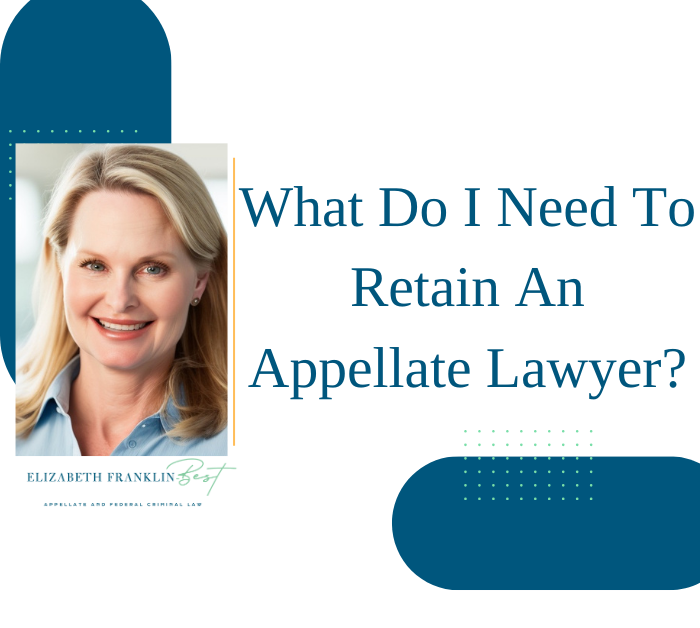What Do I Need to Retain an Appellate Lawyer?

Surprisingly, I get asked this question often. Usually, it’s after a defendant has either
been found guilty by a jury or has pleaded guilty and is awaiting sentencing. Often, it’s
after sentencing and the defendant now wants to challenge the restitution judgment.
The idea seems to be, “when do I need to hire my clean up crew?” because he or she
isn’t happy with the way the case has progressed so far. Or the defendant isn’t satisfied
with how his case was ultimately resolved and is now plagued with the consequences of
a conviction that he didn’t sufficiently consider earlier. To me, this shows a lack of deep
strategic thinking on the front end. The answer to the question of when do you need to
hire an appellate lawyer is, when you’re first developing your strategy for handling your
case. Here’s why.
Litigation, especially federal criminal litigation, has become manifestly more complex
over the past decade. There are a number of reasons for this, but one reason is the
increase in the sheer quantity of discovery that is produced by the Government.
Discovery these days is often measured in terabytes and not gigabytes. There are also
more sources of documents that could possess exculpatory evidence, so trial-level
lawyers are tasked with doing more investigation on the front end of these cases than in
decades past. And this is a trial level lawyer’s wheelhouse—this is what they do best.
Trial lawyers are experts in marshalling evidence, assessing how that evidence can be
used, and mapping out a strategy for a case.
Appellate lawyers have a different wheelhouse. We stay on top of legal developments,
in our jurisdiction, but also throughout the country. We track what appellate courts are
looking for, and we think deeply about how to frame issues so appellate courts are
receptive to our clients’ claims. We also know how trial lawyers should be making the
best record for the case and how to ensure that winning issues are appropriately
preserved so the appellate courts must address the meritorious claims. We know that
appellate courts have institutional interests that often transcend a single defendant’s
guilt, innocence, or sentence, and we work to shoehorn our clients’ cases within the
relevant frameworks so the courts are more willing to grant relief to our clients. Our
knowledge of this deep legal landscape can also have significant value for trial
counsel’s negotiations, as the Government will try to avoid appellate challenges to their
convictions and will offer better plea agreements when they perceive the risk of a
potentially meritorious appellate challenge.
Bringing an appellate lawyer to a trial team can have multiple benefits for the client’s
success. In the end, a criminal defense client wants a particular outcome—to not be
convicted of a federal crime along with the collateral consequences that flow from a
conviction, including the loss of professional licensing and restitution obligations. It
would be a lovely world if juries always acquitted innocent criminal defendants, but we
know that’s not how it works. The Government’s conviction rate is roughly 98% at the
trial level but has a reversal rate of roughly 10% on appeal. That is a huge delta and
shows how often trial courts get it wrong. An appellate lawyer functions as an insurance
policy for defendants—that if a jury or judge gets it wrong, the client knows his meritorious claims are properly preserved and prepared for the next step of the litigation which happens in the appellate courts. The problem is we’re accustomed to thinking of “trials” and “appeals” as two distinct areas of criminal defense, but they’re not. A sophisticated and knowledgeable defendant realizes these are two aspects of the same challenge to a government’s case against him.
The answer to the question then, for those who want the very best chance of success
with their cases, is to bring on an appellate lawyer at the beginning of a case to consult
and participate in motions practice. If you think of an appellate lawyer as the person
who’s going to clean up the mess after you’ve been convicted and are suffering the
consequences of that conviction, then you haven’t thought long and hard enough about
what your objectives are and how you intend to reach them. Prepare your case, from
the beginning, as if your life depends on it, because it does.
